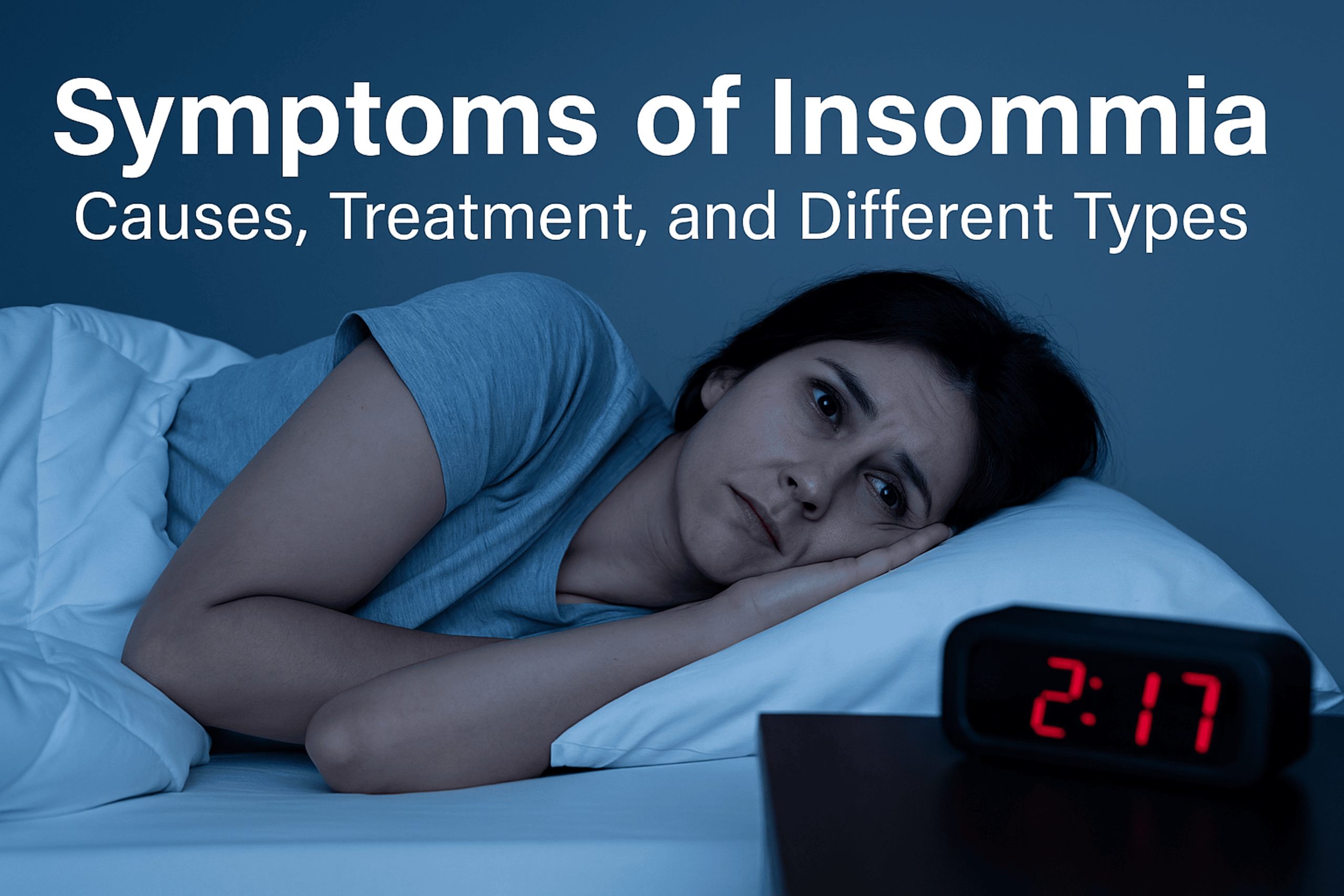We all have nights when sleep just won’t come. But if tossing and turning becomes a regular part of your life, you might be facing insomnia — a common but serious sleep disorder that affects millions around the world.
Let’s explore its symptoms, types, causes, and the most effective treatments.
🌙 What Is Insomnia?
Insomnia is the consistent difficulty in falling asleep, staying asleep, or getting restful sleep — even when your environment is ideal for it. It can affect your energy, mood, work performance, and overall health.
⚠️ Common Symptoms of Insomnia
People with insomnia may experience one or more of the following:
- Difficulty falling asleep at night
- Waking up frequently during the night
- Waking up too early and not being able to go back to sleep
- Not feeling refreshed after sleep
- Daytime fatigue or sleepiness
- Difficulty concentrating or remembering things
- Irritability, anxiety, or depression
- Increased errors or accidents
If these symptoms occur at least three times a week for three months, it’s typically considered chronic insomnia.
🔍 Types of Insomnia
1. Acute Insomnia
- Short-term (a few days or weeks)
- Often caused by stress, jet lag, or a life event
- Usually goes away without treatment
2. Chronic Insomnia
- Long-term (lasting three months or more)
- Often linked to medical, mental health, or sleep environment issues
3. Onset Insomnia
- Trouble falling asleep at the beginning of the night
4. Maintenance Insomnia
- Difficulty staying asleep or waking up too early
5. Comorbid Insomnia
- Occurs with another condition (e.g., depression, anxiety, chronic pain)
🧠 What Causes Insomnia?
Insomnia doesn’t have a single cause. It’s often a combination of factors:
- Stress or anxiety
- Depression or other mental health issues
- Poor sleep habits (e.g., irregular bedtime, screen time)
- Caffeine, alcohol, or nicotine use
- Chronic pain or illness (e.g., arthritis, asthma)
- Medications (such as antidepressants, steroids, or blood pressure drugs)
- Environmental factors (noise, light, uncomfortable bed)
🛌 Effective Treatments for Insomnia
🧘 1. Cognitive Behavioral Therapy for Insomnia (CBT-I)
- The most effective long-term treatment
- Focuses on changing negative thoughts and behaviors related to sleep
🕰️ 2. Sleep Hygiene Improvements
- Go to bed and wake up at the same time daily
- Avoid screens and heavy meals before bed
- Keep your bedroom dark, cool, and quiet
💊 3. Medications
- Short-term use of sleep aids may help, but they are not a cure
- Includes melatonin, sedatives, or antihistamines (only under doctor supervision)
🍵 4. Natural Remedies
- Herbal teas (like chamomile or valerian root)
- Relaxation techniques (deep breathing, meditation, warm baths)
📌 Final Thoughts
Insomnia isn’t just a nighttime issue — it affects your entire day, mood, and quality of life. Understanding the symptoms and addressing the root causes can help you reclaim restful nights.
If sleeplessness is becoming a pattern, don’t ignore it. Reach out to a doctor or sleep specialist for proper diagnosis and guidance.
💬 Have you struggled with insomnia? What’s helped you the most? Share your experience in the comments!


